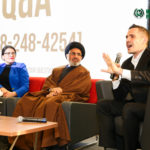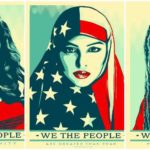By Mohammad Ali Chaudry, Ph.D.
A great majority of the writings about the Prophet Muhammad (pbuh) — both by Muslims and non-Muslims — tend to focus on the few battles in which the fledgling community of Muslims in Madinah had to defend themselves against the existential threats from the pagan Makkans. His influence, however, went far beyond these episodes in the early history of Islam. In a period of a mere 23 years, the Prophet Muhammad (pbuh) managed to end the tribal vendettas and was able to bring peace to the Arabian peninsula.
The Prophet Muhammad (pbuh) revived taqwa, loving awareness of God, and ‘adl, social, political and economic justice. He is the embodiment of the spiritual guidelines revealed in the Qur’an for the fulfillment of one’s personal purpose in life and for the resulting development of strong moral character and good manners.
He created the first ever written constitution in the seventh century CE, known as the that considered all inhabitants of Madinah to be part of the ‘umma” regardless of their faith. Thus Jews and Pagans were entitled to the same protections as the Muslims.
He pioneered the socio-political and economic guidelines for a peaceful and prosperous community life based on justice. Classical Islamic scholars relied on his example in developing Islamic normative law, the maqasid al shari’ah, as a system of human responsibilities and rights encapsulated in the following eight principles:
Respect for Divine Revelation and Freedom of Religion
Respect for the Human Person and Life the Allah has made sacred.
Respect for Family as a foundation on which to build strong community and nation
Respect for the Environment as vicegerents of Allah on the earth.
Respect for Economic Justice with Broadened Capital Ownership
Respect for Political Justice with Self-Determination through Shura (consultation)
Respect for Human Dignity with Gender Equity and equality of men and women
Respect for Knowledge and Dissemination of Thought
The Prophet Muhammad (pbuh) carried out his mission over a period of a tumultuous 23 years that established Islam on a firm foundation. According to Karen Armstrong, he achieved a remarkable feat of bringing peace among the erstwhile feuding tribes of Arabia. The fact that he was able to convince the pagan Arabs to trade with each other rather than raid each others’ caravans for a living, did more to create peace in the region and to attract most Arabian tribes to Islam than any other factors.
The Prophet Muhammad (pbuh) also had a profound impact on human history unmatched by any other leader since then as documented in The 100 by Michael Hart.1
The Prophet is “the very embodiment of the divine message” and as the perfect human being whose example we must follow. An objective and open minded look at his life and the essence of his message reveals the “infinite range of the Prophet’s concerns, his deep commitment to the destiny of man, his faith, his love, his compassion, the moral excellence of his precepts, and the relevance of his sunnah to the life of our times.” 2
(Endnotes)
1 Michael H. Hart, The 100, A Ranking of the Most Influential Persons in History, Citadel Press, Secaucus, NJ, 1987, pages 33-40.
2 Foreword by Dr. Abdullah O. Naseef to Muhammad, Encyclopedia of Seerah by Afzalu Rahman, 8 volumes, Seerah Foundation, London, 1981.








